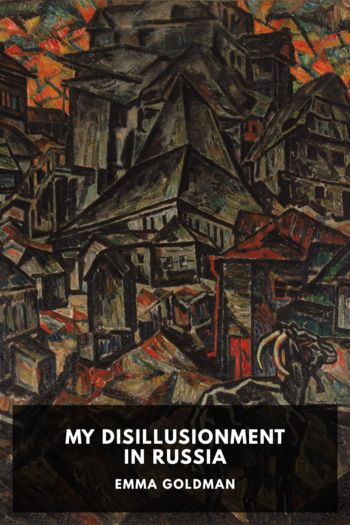Journey from St. Petersburg to Moscow Irina Reyfman (snow like ashes .TXT) 📖

- Author: Irina Reyfman
Book online «Journey from St. Petersburg to Moscow Irina Reyfman (snow like ashes .TXT) 📖». Author Irina Reyfman
However, it is to the good fortune of society that printing has not been banished from your countries. As a tree planted in an eternal spring does not lose its greenery, so the instruments of printing can be stopped in their action but not destroyed.
Having understood the danger that freedom of the press could pose to their dominion, the popes were not slow to pass laws about censorship, and this regulation acquired the force of a general law at the council that took place shortly thereafter in Rome. Holy Tiberius, Pope Alexander VI, was the first of the popes to pass a law about censorship in 1501. Weighed down himself by all his evildoings, he had no shame in showing concern for the purity of the Christian faith. But whenever has power blushed! He begins his papal bull with a complaint against the devil who sows corn cockles among the wheat and says: “Having learned that by means of the aforementioned art* many books and compositions printed in various parts of the world, particularly in Cologne, Mainz, Trier, Magdeburg, contain various errors and damaging teachings inimical to the Christian faith, and even now are still printed in some places, wishing without delay to preempt this odious ulcer, for each and every printer of the aforementioned art and for all those belonging to it and for all who are active in the business of printing in the places mentioned above, under pain of anathema and a fine to be determined and collected for the benefit of the Apostolic Camera by our honorable brethren the archbishops of Cologne, Mainz, Trier, and Magdeburg, or their vicars in their regions, we forbid by virtue of our apostolic power to print or to submit for printing books, treatises, or writings unless they have been referred to the aforementioned archbishops or vicars and unless they have been granted authorization that has specifically been without personal compensation; we charge them on their conscience so that, before they grant authorization of this kind, they will consider carefully the writings designated for print or have them examined by the scholarly and truly religious; and that they maintain the utmost vigilance that nothing be published that is contrary to the true faith and capable of giving rise to impiety and temptation.” And so that books already in existence cause no further harm it was decreed that all inventories of books and all printed books be inspected and that those whose contents in any part opposed the Catholic confession be burned.
O! you who establish censorship, remember that you may be compared to Pope Alexander VI and may shame overcome you!101
In 1515, the Lateran Council passed a decree on censorship that no book could be printed without the permission of the clergy.
From the preceding, we have seen that censorship was invented by the clergy and that it was adopted exclusively by them. Accompanied by anathema and a fine, censorship could at the time seem like a terrible thing to the violator of the rules published about it. But the rejection by Luther of pontifical authority, the breach of various rites from the Roman church, disputes among different powers during the Thirty Years War, gave rise to many books published without the usual seal of approval from the censor. Everywhere, however, the clergy arrogated to itself the right to exercise censorship on publications and when in 1650 secular censorship was established in France, the Faculty of Theology of the University of Paris protested against this new ordinance by arguing that it had in fact for two centuries enjoyed this right.
It was shortly after the introduction of printing in England* that censorship was established.102 The Star Chamber, no less terrible in its time for England than the Inquisition in Spain or the Secret Chancery103 for Russia, decided on the number of printers and printing presses and established the office of the vetter of print matter without whose authorization one would not dare print anything at all. The excesses of the Star Chamber against those who wrote about the government were endless and its history abounds in this kind. If, therefore, in England clerical superstition was incapable of imposing on reason the heavy curb of censorship, it was imposed by political superstition. But each of these made it their business to preserve power intact, that the orbs of enlightenment be veiled by the fog of enchantment, and that coercion dominate at the expense of reason.
It was the death of the Earl of Strafford that precipitated the demise of the Star Chamber;104 but neither the liquidation of the latter nor the trial and execution of Charles I were able to confirm the freedom of the press in England. The Long Parliament restored the old regulations established against it. They were again restored during the reigns of Charles II and James I. Even in 1692 at the conclusion of the Glorious Revolution this legislation was confirmed although only for two years. When the two years were over in 1694, liberty to print was fully restored and after a final gasp censorship gave up the ghost.*
The American states adopted freedom to publish among the very first laws establishing civil liberties. In chapter 1 of its constitution, in article





Comments (0)